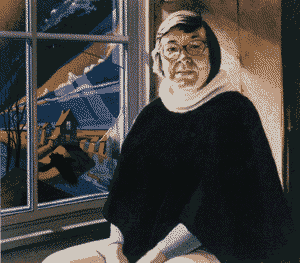 |
"Rain Child"
 |
|
|
|
| the head mistress Hilda Poovey.
Mrs. Clare Mackie David Mackie |
Kwaale's father
the owner of the oil palm plantation Dr. Quansah. |
| Ms. Violet Nedden | Ruth
Ayesha as a stolen slave Yindo as an internal migrant to work |
| Ref. Ethnic groups in Ghana:
"In 1960 roughly 100 linguistic and cultural groups were recorded in Ghana. . . . The major ethnic groups in Ghana include the Akan, Ewe, Mole-Dagbane, Guan, and Ga-Adangbe. " (source) |
My writing, then, has been my own attempt to come to terms
with the past. I see this process as the gradual one of freeing
oneself from the stultifying aspect of the past, while at the same
time beginning to see its true value which, in the case of
my
own people (by which I mean the total community, not just my
particular family), was a determination to survive against
whatever odds. ("A
Place to Stand On")
Tomorrow-Tamer, [where "Rain Child is from]: "The stories
are set in Ghana in the period immediately prior
to its constitution as an
independent nation in 1957, and so depict a society in transition, in which
the old
and the new come into violent collision at every turn. Notwithstanding
the
specifically African context in which they are elaborated, however, the
themes are
essentially those that appear elsewhere in the Laurentian canon, those
having to
do with the nature and foundation of identity, the
constraints upon human
communication, the true essence of freedom, the complex interplay between
change and tradition. As in Laurence's other books, these themes
are typically
articulated through the central metaphor of exile,
reinforced in many instances by
biblical imagery of the fall, of exodus, and of the quest for a Promised
Land. What
we are witnessing in other words are the preoccupations that haunt the
entire
corpus of Laurence's fiction, worked out on this occasion within the framework
of a
specific political situation which invests them with a local habitation
and a name, a
particularized content and a set of appropriate metaphors. And as in Laurence's
other works, the unvoiced question hovering over
nearly all of these stories is that
of the basis that can be established for relationship with the Other, the
"Other"
conceived in both a personal and a cultural sense. ("Dancing to a New Song
The Limits of Community in
Laurence's The Tomorrow-Tamer " David Lucking )
|
|
|
|
![]() Setting
--
Setting
--
|
|
|
|
|